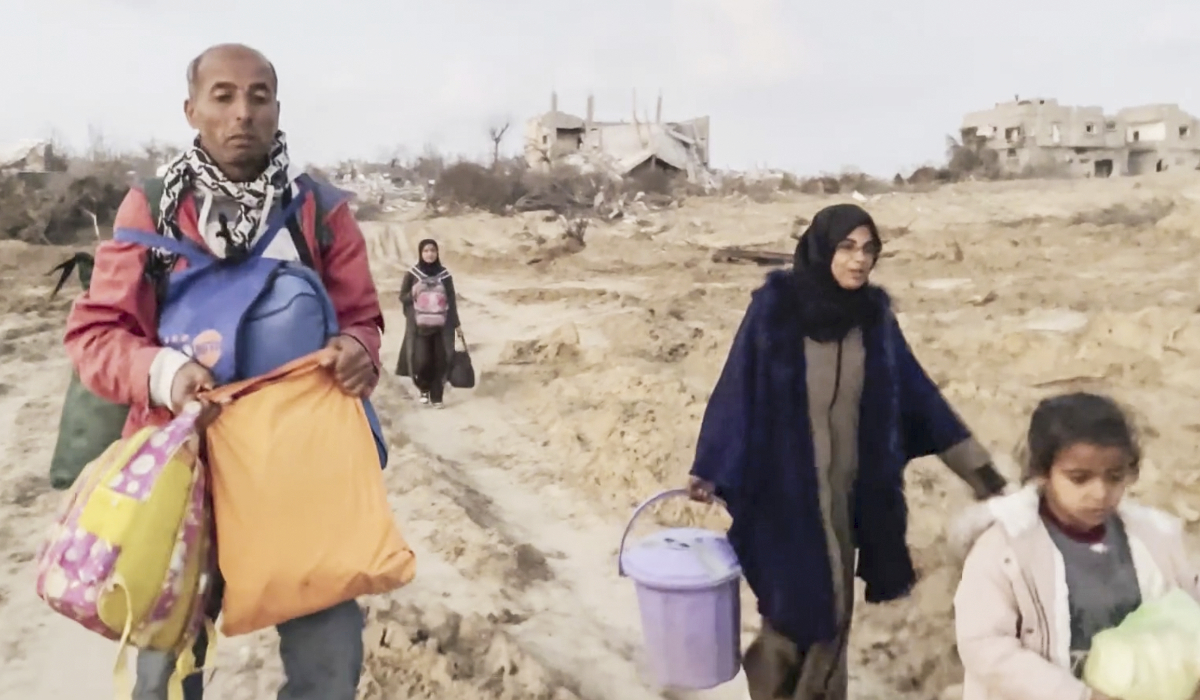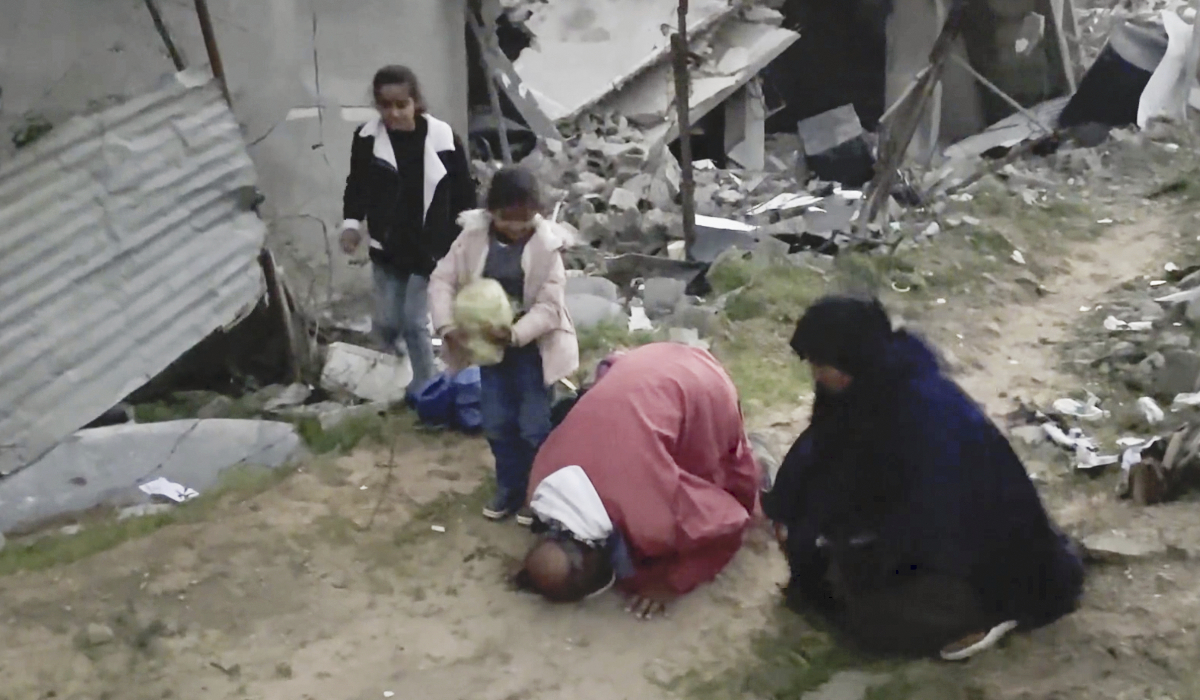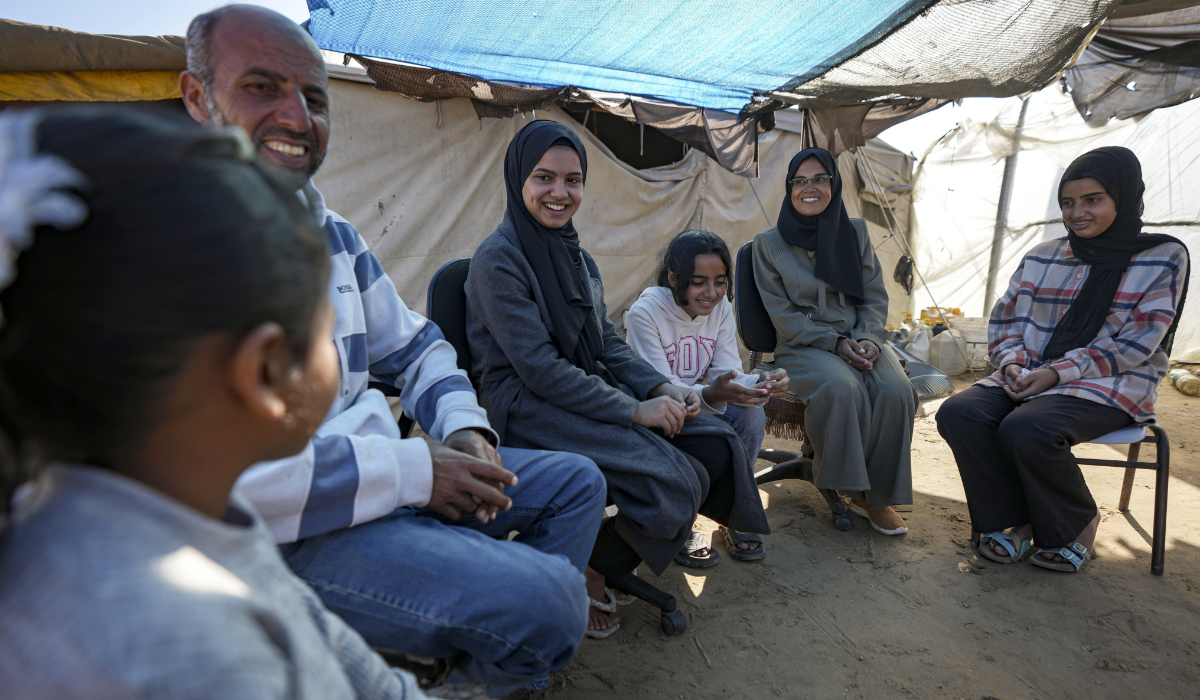LONDON: Britain has said Iran will face consequences if it backs away from its nuclear deal, following Tehran’s announcement on Wednesday that it was scaling back curbs to its nuclear program that had been agreed under a 2015 deal with world powers.
“Today’s announcement from Tehran is ... an unwelcome step,” junior foreign office minister Mark Field told Britain’s parliament.
“We are not at this stage talking about re imposing sanctions, but one has to remember that they were of course lifted in exchange for the nuclear restrictions.”
A year after Washington pulled out of the nuclear deal, Iran’s President Hassan Rouhani unveiled measures that do not appear to violate its terms yet, but could do so in the future if Iran were to persist on the course he set out.
“Should Iran cease meeting its nuclear commitments, there would of course be consequences,” Field said.
US Secretary of State Mike Pompeo, in London, said America, which abandoned the deal last year, "will wait and observe" what Iran does next. "They have made have made a number of statements about actions they have threatened to do in order to get the world to jump," Pompeo said.
Anerica's envoy for Iran Brian Hook went further, accusing Iran of engaging in "nuclear blackmail."
"America is never going to be held hostage to the Iranian regime's nuclear blackmail," he said.
France’s defense minister also said on Wednesday it wanted to keep the Iran 2015 nuclear deal alive, but warned that if Iran were to not keep to its commitments then the question of triggering a mechanism that could lead to sanctions would be on the table.
Speaking to BFM TV, Florence Parly said ‘nothing would be worse’ than Iran withdrawing from the deal and that France, Britain and Germany were doing all they could to keep the accord alive.
Collective responsibility
Elsewhere, China’s foreign ministry said the 2015 Iran nuclear agreement should be fully implemented and all sides have a responsibility to ensure it happens. Foreign ministry spokesman Geng Shuang made the remarks during a daily briefing.
And Israeli Prime Minister Benjamin Netanyahu vowed not to allow Iran to acquire nuclear arms after the Islamic republic said it would abandon limits on its nuclear activities agreed in a 2015 deal.
“This morning on my way here I heard that Iran intends to continue its nuclear program,” Netanyahu said at a ceremony on Israel’s annual day of remembrance for its fallen soldiers and civilian victims of militant attacks.
“We shall not allow Iran to obtain a nuclear weapon,” he said in Hebrew.
Russia said it stood by the Iran nuclear deal and denounced US pressure that led to Tehran to suspend some of its commitments under the agreement.
Kremlin spokesman Dmitry Peskov said President Vladimir Putin remained committed to the agreement and that there were no alternatives “at the moment” to the deal.
“Putin has repeatedly spoken about the consequences of ill-considered steps towards Iran, meaning the decision taken by Washington” to reimpose sanctions, Peskov said.
He said Russia would work with European countries to maintain the “continued viability” of the nuclear deal and that it was too early to discuss the possibility of Russia joining sanctions against Tehran.
“Putin has said that it is ill-conceived and arbitrary decisions that put unreasonable pressure on Iran and cause the adverse steps that we are facing.”
Reimpose sanctions
Other European countries said on Tuesday that they would reimpose sanctions on Iran if it reneges on commitments under its nuclear deal, a source at the French presidency said on Tuesday, after Tehran said it would scale back its compliance a year after Washington pulled out.
Iran dismissed a US announcement of the deployment of an aircraft carrier to the Middle East as old news, recycled for psychological warfare, and said it would soon announce plans to roll back some of its commitments under the 2015 deal.
Tensions have risen on the eve of the anniversary of President Donald Trump’s withdrawal from the nuclear deal, under which Iran agreed to curbs on its nuclear program in return for the lifting of international sanctions.
The Trump administration has restored US sanctions and extended them, effectively ordering countries around the world to stop buying Iranian oil or face sanctions of their own.
Washington’s European allies, which oppose the US pull-out, have tried and failed to come up with ways to blunt the economic impact of the US move while urging Iran to continue to comply.
‘Psychological warfare’
US national security adviser John Bolton said on Sunday the United States was deploying the Abraham Lincoln carrier strike group and a bomber task force to the Middle East in a warning over threats by Iranian forces.
But Keyvan Khosravi, spokesman for Iran’s Supreme National Security Council, said the Abraham Lincoln was already due in the Gulf and dismissed the announcement as a “clumsy” attempt to recycle old news for “psychological warfare.”
The United States typically rotates an aircraft carrier in the Gulf to serve as the flagship of its Fifth Fleet based in Bahrain. The previous carrier in the area, the John C Stennis, left in April to sail for home at the end of its deployment.
Acting US Defense Secretary Patrick Shanahan said on Monday he had approved dispatching the carrier strike group and bombers due to indications of a “credible threat by Iranian regime forces.” He gave no details of underlying intelligence.
Iranian Foreign Minister Mohammad Javad Zarif said on Twitter: “If US and clients don’t feel safe, it’s because they’re despised by the people of the region — blaming Iran won’t reverse that.”
Iran’s state-run Press TV earlier said: “The deployment seems to be a ‘regularly scheduled’ one by the US Navy, and Bolton has just tried to talk it up.”
A military adviser to Supreme Leader Ayatollah Ali Khamenei said the United States was “neither willing nor capable” of military action against Iran,” the semi-official news agency ISNA reported.
As jitters over the war of words rose, Iran’s rial currency extended its fall on Tuesday, hovering around a seven-month low of 150,500 against the US dollar on the unofficial market, foreign exchange websites reported.
Since withdrawing from the nuclear deal, Washington has given waivers to some countries, mainly in Asia, to keep buying Iranian oil for a limited time. But last week it said it would now end the waivers to reduce Iran’s crude exports to zero.
The administration also blacklisted Iran’s elite Revolutionary Guard Corps as terrorists. The Guards control a large swathe of Iranian industry, so their blacklisting could make it harder for foreign companies to do business with Iran.
Iran has responded by declaring all US forces in the Middle East to be terrorists. It has also made threats to close the strategic Strait of Hormuz in the Gulf if Tehran were barred from using it. Around 30 percent of the world’s seaborne oil exports pass through the strait.
While neither Shanahan nor Bolton elaborated on the gist of US intelligence, other US officials told Reuters there were “multiple, credible threats” against US forces on land, including in Iraq, by Iran and proxy forces, and at sea.




























